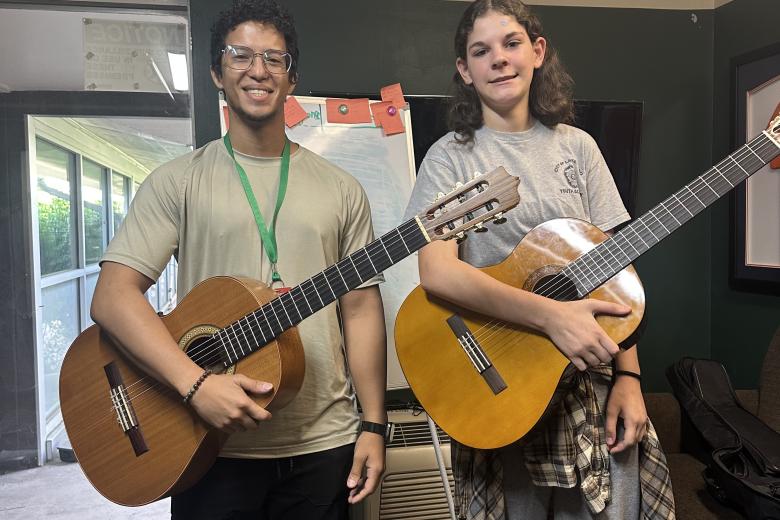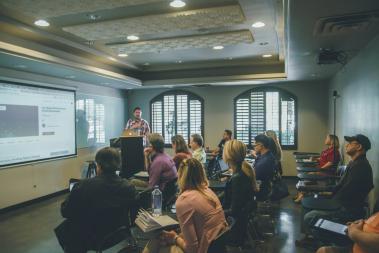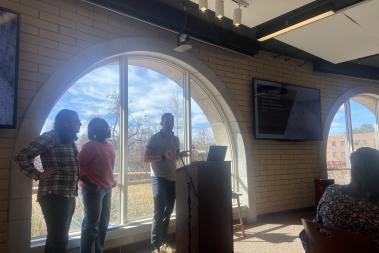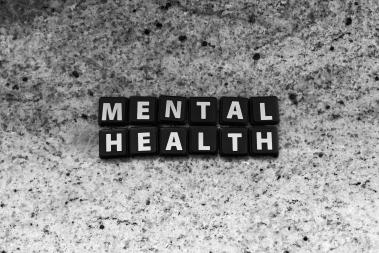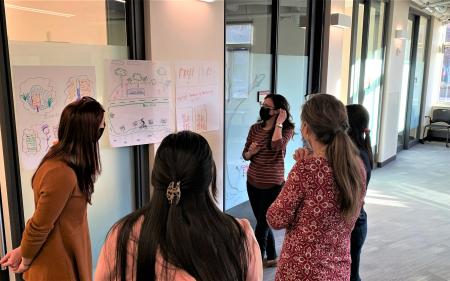Community-Engaged Fellows
Community-Engaged Fellows advocate for community engagement and pursue community-engaged work. During the academic year, Fellows serve as ambassadors for CCESL, mentor undergraduate students, learn and reflect with their peers, and develop and implement a community-engaged project. Through these community-engaged projects, Fellows connect their academic and professional endeavors to supporting thriving communities.
This is a paid position open to graduate students and undergraduate students with advanced experience in community engagement who are enrolled for the entire 2025-2026 academic year.
The 2025 - 2026 application is closed. Check back in spring 2026 for the 2026-2027 application.
Questions?Featured Projects
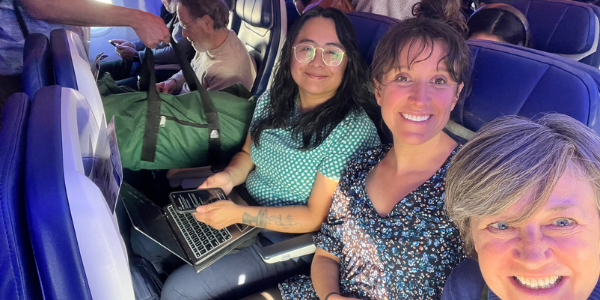
Iris Vanegas
Iris Vanegas, a PhD student at the Graduate School of Social Work, partnered with Mujeres Unidas y Activas, a Latina immigrant-led grassroots organization founded in San Francisco in 1989, during the 2024-25 academic year. Motivated by the organization’s commitment to empowering Latina women, Iris sought to understand how their work shapes not only individual lives but also their families, drawing on the Family Impact Framework for her analysis.
Iris interviewed ten members across three office locations, most of whom migrated from Mexico or Guatemala between the ages of sixteen and forty-nine. These women, whose average age is 53.7, have collectively demonstrated remarkable resilience and dedication, with involvement in the organization ranging from six months to over two decades.
Through this collaboration, Iris rediscovered the importance of building intentional and patient relationships with community partners, approaching the work with humility, and remaining flexible and open to new experiences. The project underscored that community-engaged research flourishes when researchers listen deeply and center the voices of those most impacted.
Reflecting on the experience, Iris is grateful for the trust and honesty shared by participants and looks forward to strengthening her relationship with Mujeres Unidas y Activas and continuing to learn from this vibrant community.
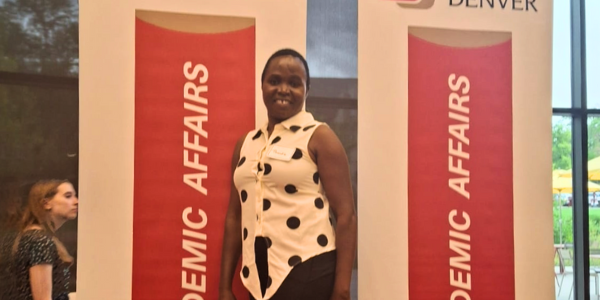
Thandiwe Sesa
Thandiwe Sesa, a second-year graduate student in Organization Leadership originally from Malawi, centers her academic work on how leadership is transformed through collective action and social justice principles. As a Community Engagement Fellow with the Documenting the Past, Fostering the Future (DPFF) initiative, Thandiwe bridges academic research and community storytelling. This experience has sharpened her focus on the ways anti-racist pedagogy shapes historical recovery and fosters leadership grounded in equity and collaboration.
Her fellowship with CCESL has strengthened Thandiwe’s commitment to advancing the public good by connecting scholarship to lived experience. Through the DPFF project, she has gained valuable skills in documentation and stakeholder engagement. Thandiwe’s efforts underscore how anti-racist pedagogy and collective leadership can advance equity, support historical recovery, and create lasting community impact.
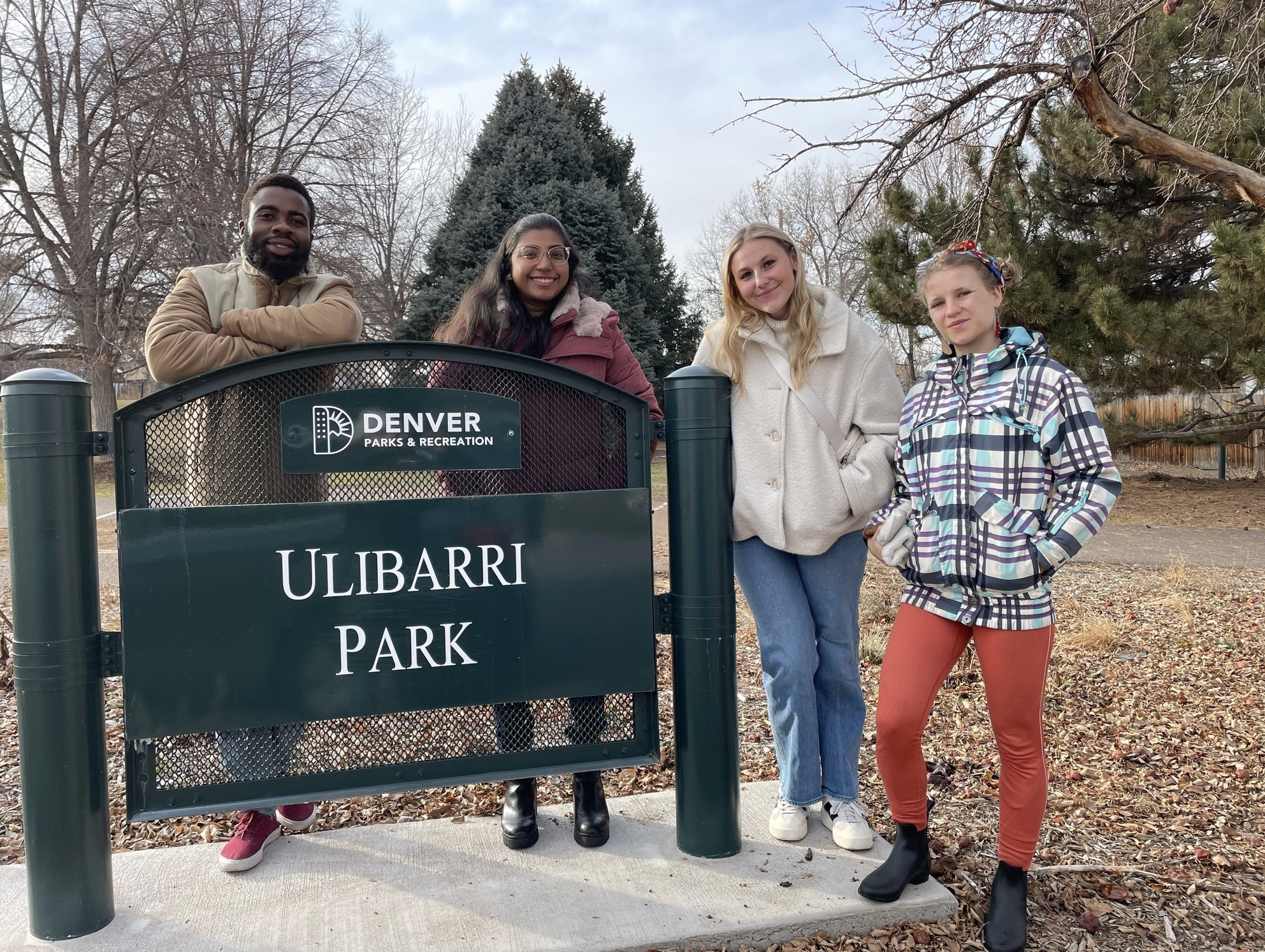
Drashti Chikhalia
Drashti Chikhalia is a current Master of Science student in the University College department who has worked with CCESL for two years during her time at the University of Denver. In late 2023, Drashti joined the Center for Community Engagement to advance Scholarship and Learning (CCESL) and the Valverde Movement Project (VMP) as a student scholar, marking the start of an important personal and professional journey. In her time with Gals Who Garden (GWG) and VMP, Drashti blended her passion for gardening with her commitment to environmental justice, focusing on building trust with teen mothers at Florence Crittenton, school staff, and community partners. She helped gather student feedback to inform GWG’s garden plans and participated in weekly partner meetings, deepening her understanding of collaborative community work. Drashti also created accessible communication materials and connected directly with the teen moms to better understand their perspectives. Working with CCESL and the Valverde Movement Project and Gals Who Garden, Drashti discovered the healing power of green spaces and grew as a communicator, collaborator, and advocate for environmental equity. By building trust, designing creative outreach, and sharing community stories, she saw firsthand how visual communication can amplify local voices and drive justice-driven change.
2025-2026 Fellows Projects
2024-2025 Fellows Projects
2023-2024 Fellows Projects
2022-2023 Fellows Projects
Past Featured Fellows Articles
